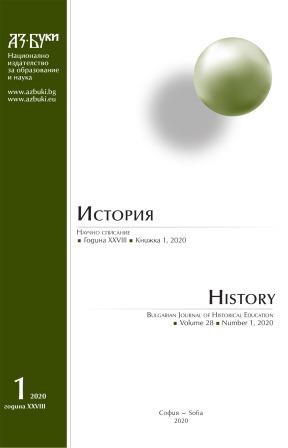Постапокалиптични реалии. Икономическото възстановяване на Кралството на сърби, хървати и словенци (КСХС) и България след Първата световна война
Postapocaliptic Realities. Еconomic recovery of Kingdom of Serbs, Croats and Slovenes and Bulgaria after WWI
Author(s): Hristo BerovSubject(s): History, Economy, National Economy, Comparative history, Diplomatic history, Economic history, History of ideas, Modern Age, Recent History (1900 till today), Interwar Period (1920 - 1939), Period(s) of Nation Building, Socio-Economic Research
Published by: Национално издателство за образование и наука „Аз-буки“
Keywords: Balkan economy; World War One; economic consequences; Bulgaria; Yugoslavia
Summary/Abstract: The main emphasis of this text above is economic reconstruction of the Balkan countries that followed hardships and horrors of World War One. Being part of the European continent, the Balkan countries face serious difficulties in overcoming the effects of the global conflict and cannot be separated from political and social crises devastating the continent by the mid-1920s. Those aspects are quite well, though not enough, covered. Far less attention is paid to the economic efforts to overcome post-war difficulties. It is precisely this aspect that is the focus of this research, with the main purpose of empirically testing the working hypothesis of the identical behavior of the Balkan states in a situation of global political and economic crisis, such as Bulgaria and the Kingdom of Serbs, Croats and Slovenes in the years after the First World War. The choice of the two countries is justified by a methodological point of view, since it makes it possible to find similarities and to distinguish differences in the economic recovery policies of the two countries that fall into the camp of the defeated and the victorious ones, respectively, which at first sight is a condition of a different type of problems, policies and results. Setting them against the backdrop of pan-European and global trends, in turn, guarantees a better look at the “uniqueness” of specific post-world-war-one Balkan conditions.
Journal: История
- Issue Year: 28/2020
- Issue No: 1
- Page Range: 23-47
- Page Count: 25
- Language: Bulgarian
- Content File-PDF

